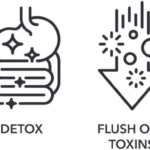
Can Gut Microbiome Therapies Manage Food Intolerances?
Key Takeaways
- The gut microbiome plays a crucial role in regulating immune responses.
- Gut microbiome therapies can significantly help in managing food intolerances.
- Increasing rates of allergies, especially in children, necessitate effective management strategies.
- Innovative gut health remedies are rising, offering new hope for those with intolerances.
- A healthy gut can lead to improved overall well-being and a reduction in allergy symptoms.
- Understanding the microbiome is essential for developing personalized health strategies.
Understanding Gut Microbiome Therapies
| Microbial Diversity | Health Benefits | Influencing Factors |
|---|---|---|
| High Diversity | Improved immune responses, reduced allergy risk | Diet, environment, lifestyle |
| Low Diversity | Higher susceptibility to food sensitivities | Infant feeding practices, antibiotic use |
| Specific Bacterial Strains | Protection against allergies | Early microbial exposure |
How Gut Microbiome Therapies Affect Intolerance
More people are seeking solutions to manage food intolerances, and gut microbiome therapies are quickly becoming popular. These therapies rely on beneficial bacteria to regulate the immune system and enhance food tolerance. Ongoing research continues to underscore their crucial role in improving gut health.
The Role of Commensal Bacteria in Intolerance
Commensal bacteria play a key role in maintaining a healthy gut. They help regulate the immune system and support a balanced gut microbiome, which is essential for overall gut function. Research shows that certain strains of bacteria produce compounds necessary for gut health. For example, Prof. Cathryn Nagler’s research highlights the importance of Clostridia bacteria in balancing the immune system, emphasizing their role in gut microbiome therapies.
Short-Chain Fatty Acids: Key Players in Gut Health
Short-chain fatty acids (SCFAs) are vital for gut health due to their anti-inflammatory properties and ability to support immune tolerance. By reducing inflammation and boosting immune responses, SCFAs play a critical role in managing food allergies, making them an essential focus in gut microbiome therapies.
Probiotic Supplements and Their Impact on Gut Microbiome Therapies
Probiotic supplements are popular for improving gut health and managing intolerances. These live microorganisms provide benefits, such as balancing the gut microbiome. In fact, knowing the different probiotics and choosing the right one is key to their effectiveness, especially for those seeking relief from intolerances.
Types of Probiotics Beneficial for Intolerance
Some probiotic strains are particularly good for dealing with intolerances. I’ll highlight a few:
- Lactobacillus: This helps with digestive health and fights lactose intolerance.
- Bifidobacterium: It may improve gut function and help with food allergies.
- Akkermansia muciniphila: Supports gut barrier function and aids in managing intolerances.
1. Look for Well-Researched Strains
- Not all probiotic strains are the same, and some are more beneficial for certain conditions than others. For instance, if you’re dealing with food intolerances, strains like Lactobacillus and Bifidobacterium have been extensively researched and are known to promote digestive health and reduce food sensitivities. By selecting a probiotic strain that has been scientifically proven to target specific health issues, you increase the likelihood of successful outcomes in your gut microbiome therapy.
2. Ensure a High CFU Count for Effectiveness
- CFU, or colony-forming units, measures the number of live and active microorganisms in a probiotic supplement. Generally, higher CFU counts, usually ranging from 10 to 50 billion, are considered more effective at restoring and balancing the gut microbiome. However, the required CFU count depends on individual health needs, so be sure to choose a product with the appropriate CFU levels for your specific digestive or intolerance issues. This ensures that the probiotic can adequately colonize the gut and provide the desired health benefits.
3. Read Labels to Avoid Unwanted Allergens and Fillers
- Many probiotic supplements contain fillers, additives, or allergens such as dairy, soy, or gluten that may disrupt your digestive health or exacerbate intolerances. Therefore, it’s crucial to carefully read the labels to ensure the supplement is free from any ingredients that could negatively impact your health. For those following specific diets or dealing with intolerances, selecting hypoallergenic or additive-free options is essential for achieving the desired results from gut microbiome therapies.
4. Consult a Health Expert, Especially if You Have Medical Conditions
- If you have pre-existing medical conditions, a weakened immune system, or are taking medications, it’s vital to consult a healthcare professional before adding a probiotic to your regimen. Certain probiotics, though generally safe, may interact with medications or exacerbate underlying health conditions. By seeking expert guidance, you can make an informed choice that ensures your probiotic supplements work harmoniously with your overall health plan, enhancing the effectiveness of gut microbiome therapies without adverse effects.
Ultimately, choosing the right probiotic supplement involves not only picking a trusted brand but also aligning the probiotic strain, CFU count, and product composition with your specific health needs and goals for long-term gut microbiome health.
By adding the right probiotic supplements to my diet, I have been able to manage intolerances more effectively. In fact, considering these tips has improved my digestive health significantly.
Gut Microbiome Therapies for Allergy Relief
Our knowledge of the human microbiome is growing, and with it, ways to relieve allergies. Scientists are discovering how certain bacteria can help stop allergic reactions. As a result, they are working on new gut microbiome therapies that could help people with allergies.
Understanding Allergen Sensitization
When our immune system sees harmless things like food proteins as threats, this is called allergen sensitization. This can lead to various allergic reactions. Research shows how important our gut’s bacteria is in this process, especially early in life. Moreover, factors such as cesarean births or a lack of dietary fiber can disrupt the microbiome, increasing the risk of allergies. Thus, addressing these issues with gut microbiome therapies is essential for long-term health.
Experimental Approaches in Gut Microbiome Therapies
There’s exciting work happening in gut microbiome therapies to reduce allergy sensitivity. For instance, scientists are testing oral administration of specific bacteria to strengthen the immune system. Furthermore, treatments like inulin gel are being researched to restore healthy gut bacteria, improving how we handle allergens.
This research brings hope for new ways to deal with allergies. Indeed, it shows just how linked our gut health is to allergic reactions.
Gut-Friendly Supplements for Digestive Health
Gut-friendly supplements are essential for better digestive health. In fact, they include prebiotics and probiotics, each playing unique roles in maintaining a healthy balance in our gut.
Prebiotics vs. Probiotics: What’s the Difference?
- Prebiotics feed our good gut bacteria. They are fibers our body can’t digest but enhance the growth of healthy bacteria.
- Probiotics, on the other hand, are live beneficial organisms. They include bacteria and yeast that improve gut flora. Therefore, using prebiotics and probiotics together enhances digestive health, forming the basis of effective gut microbiome therapies.
Top Gut-Friendly Supplements to Consider
Here are some supplements I consider for my gut health:
- Probiotics: Including Lactobacillus and Bifidobacterium to treat gut issues.
- Prebiotic Fiber: Inulin or psyllium supplements that help good bacteria thrive.
- Glutamine: Eases IBS symptoms and boosts nutrient absorption.
- Ginger: Supports bacterial diversity and fights nausea.
- Peppermint Oil: Targets the intestines to ease IBS symptoms.
- Chamomile: Helps with digestive discomfort and stomach cramps.
- Artichoke Leaf Extract: Eases indigestion and abdominal pain.
By incorporating these supplements into my daily routine, I’ve been able to have a balanced and healthy gut microbiome.

Innovative Research and Therapies in Development
Exploring new research on gut microbiome therapies is opening doors to better food intolerance treatments. It’s exciting to see how this field is growing, with studies introducing good microbes and SCFAs to help our bodies handle food better. Thus, these new therapies are designed to match our unique gut profiles, aiming to boost our digestive health.
The Future of Microbiome Therapy
Current Clinical Trials and Their Outcomes
Clinical trials are at the forefront of innovation in gut microbiome therapies. Researchers are investigating how probiotics and live cultures can combat allergies and enhance gut wellness. These studies are crucial for determining if new treatments, such as Omalizumab and Palforzia, are effective against food allergies. Therefore, every study provides valuable insights into how certain bacteria and substances affect our health.
Intolerance Management Strategies in Daily Life
Managing food intolerances doesn’t have to be hard. Thoughtful diet changes, combined with gut microbiome therapies, can make a big difference in improving gut health, making eating more enjoyable.
Dietary Changes That Support Gut Health
Some dietary changes can significantly support gut health. For example, adding high-fiber foods and fermented products is key. Additionally, cutting back on processed foods is crucial. Here are some diet tips that help:
- First, increase the intake of fruits and vegetables for natural fiber.
- Second, include fermented foods like yogurt, kimchi, and sauerkraut to promote a healthy gut microbiome.
- Finally, limit processed foods with additives contributing to digestive issues.
The Importance of a Diverse Diet
A diverse diet is great for gut health. In fact, eating a wide range of foods helps maintain a balanced gut microbiome, which is crucial for good health and preventing new intolerances.
- Supports a more varied gut microbiome, linked to better health outcomes.
- Provides a broader range of nutrients, helping the body function optimally.
- Reduces the likelihood of developing new food intolerances.
Exploring Digestive Health Solutions
A healthy gut is key to overall well-being. By eating a balanced diet rich in fiber, fruits, and vegetables, I’ve improved my gut health. In particular, adding prebiotic and probiotic-rich foods to my diet has been incredibly beneficial. Moreover, drinking plenty of water helps digestion and nutrient absorption, supporting a healthy gut microbiome.
How to Maintain a Healthy Gut Microbiome
My daily habits significantly impact my gut health. For example, regular exercise keeps my gut bacteria diverse, in addition to keeping me fit. Also, practicing mindfulness or yoga helps reduce stress, which supports digestive health. Too much stress can upset the gut, so taking care of mental health is a priority too.
Conclusion
FAQ
Q: What is the gut microbiome?
A: The gut microbiome consists of trillions of microorganisms, like bacteria, viruses, fungi, and more. It’s essential for health, affecting our immune system, metabolism, and digestion.
Q: How does the gut microbiome affect food intolerances?
A: An unbalanced gut can lead to “leaky gut.” This lets allergens into the blood, causing reactions. So, keeping the gut healthy is key to managing food intolerances.
Q: What are gut microbiome therapies?
A: These therapies use specific bacteria or probiotics to balance the gut. They can improve immune responses, digestion, and may help with food intolerance symptoms.
Q: How can I choose the right probiotic supplement?
A: Look for strains like Lactobacillus and Bifidobacterium, known for gut health. Consulting a healthcare professional can help find the best choice for you.
Q: What role do short-chain fatty acids play in gut health?
A: SCFAs are made by good bacteria and are vital for gut health. They protect against bad bacteria and support healthy gut microbes.
Q: Are there dietary changes that can support gut health?
A: Yes. Eating fiber-rich and fermented foods, and less processed food helps keep a diverse gut microbiome. This diversity is crucial for a strong immune system and better tolerance.
Q: What are the benefits of prebiotics?
A: Prebiotics feed good bacteria, helping them grow and keeping the microbiome balanced. They improve digestion and, with probiotics, offer more benefits.
Q: How can lifestyle choices impact gut health?
A: Living healthy, like exercising regularly, staying hydrated, and managing stress, benefits gut health. These habits boost the effect of gut therapies and support long-term well-being.
Q: What is allergy sensitization?
A: It’s when the body wrongly reacts to allergens. Knowing about it is crucial for using microbiome therapies to reduce allergen reactions.
Q: What innovative research is happening in microbiome therapy?
A: Researchers are creating personalized microbiome therapies. They’re looking into ways to better tolerance and immune responses with new methods.
Source Links
Microbiome and Food Allergies
- Microbiome Therapeutics for Food Allergy
- Food Allergy and the Microbiome: Current Understandings and Future Directions
- Gut microbiome influences food allergy risks
- Specific gut microbiome signatures and the associated pro-inflamatory functions are linked to pediatric allergy and acquisition of immune tolerance – Nature Communications
- The Role of Gut Microbiota and Leaky Gut in the Pathogenesis of Food Allergy
- To cure food allergies, treat the microbiome
- Frontiers | Gut Microbiome as Target for Innovative Strategies Against Food Allergy
- Gut Microbiome as Target for Innovative Strategies Against Food Allergy
- The Future of Food Allergy Management: New Technologies and Treatments
- Mount Sinai Researchers Uncover Early Signs in Gut Bacteria That Could Predict Peanut Allergy Development
- Management of Adult Patients with Gastrointestinal Symptoms from Food Hypersensitivity—Narrative Review
- Could a dietary fiber supplement offer long-awaited treatment for food allergy sufferers?
- Probiotic Supplements: Their Strategies in the Therapeutic and Prophylactic of Human Life-Threatening Diseases
Mechanisms of Gut Microbiome and Sensitivities
- Mechanisms by which gut microorganisms influence food sensitivities
- How the gut microbiota plays a role in food sensitivities
- Exploring the gut microbiota: lifestyle choices, disease associations, and personal genomics
Gut Health and Supplementation
- A Guide To The Best Vitamins And Supplements For Gut Health
- 8 Digestive Health Supplements
- Unveiling the therapeutic symphony of probiotics, prebiotics, and postbiotics in gut-immune harmony
- These 13 RD-Approved Probiotics Can Help Relieve Gas, Bloating, Cramping, and More
Research and Reviews on Gut Microbiome and Allergies
- Frontiers | Microbiome and Allergic Diseases
- Relationship between Gut Microbiota and Allergies in Children: A Literature Review
General Gut Health and Disease
twinklecrest
Somebody essentially help to make significantly articles Id state This is the first time I frequented your web page and up to now I surprised with the research you made to make this actual post incredible Fantastic job
Belli Health
Thank you for your kind words. It helps me know the content has value for some people, like you. 🙂
techyin
I was suggested this web site by my cousin Im not sure whether this post is written by him as no one else know such detailed about my trouble You are incredible Thanks













































3 comments